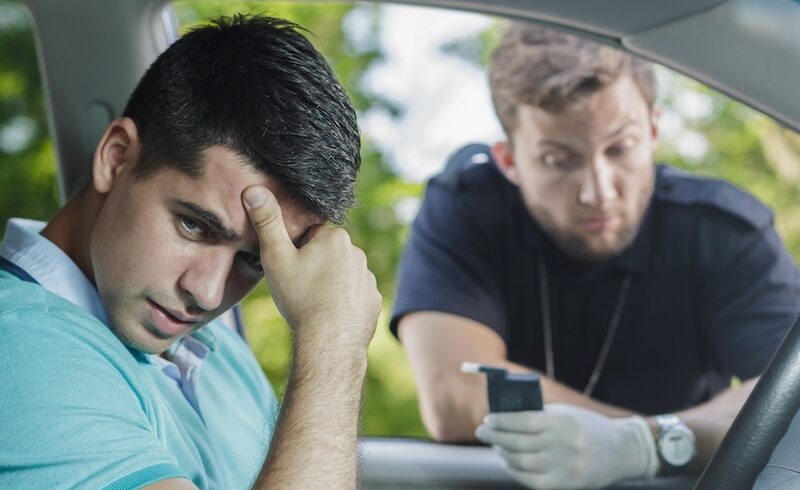
Illinois takes DUIs very seriously.
In 2009, it doubled the penalties for first-time offenders. If the police arrest you for a DUI, you can see your license suspended automatically for six months. After a DUI conviction, the minimum license revocation is a full year.
Those on their second or third convictions lose their ability to drive for a minimum of five and ten years respectively in certain circumstances.
In other words, if you get caught drinking and driving in the state of Illinois, you can say goodbye to your driver’s license.
Fortunately, your time behind the wheel isn’t over for life. Here’s how to get a revoked license reinstated.
How and When You Can Lose Your License in Illinois
Illinois takes a hard line on drunk and impaired driving.
In fact, the state doesn’t wait for a criminal DUI conviction to snatch your license from you. You can lose it even before you go to trial through a summary suspension.
It all starts the day you get pulled over.
The first time you fail your BAC or breathalyzer test or refuse to take the text, you can lose your license for six months or twelve months.
Things can get worse from here.
The second or subsequent breathalyzer failure leads to a one-year license suspension. If you decline the test a second time within 5 years from a previous DUI, that’s three years of driving privileges gone.
Automatic license suspensions differ from revocations. A suspension ends automatically after a period of time with the only requirement being a reinstatement fee.
Your DUI attorney handles the suspension separately from the DUI case, and you may receive a Monitoring Device Driving Permit, or fight for the suspension to be recinded.
How to Get a Revoked License Reinstated
Were you convicted of a DUI and saw your license revoked? Getting your license back after revocation requires you to check a long list of boxes.
You’ll do this through the Illinois Secretary of State’s Driver’s License Reinstatement Hearing program. The program includes two types of hearings: formal and informal.
Some DUI suspensions/revocations come with an informal hearing, which can be a faster way of getting a permit or reinstatement of your driver’s license.
However, you may need to attend a formal hearing if your case:
- Includes multiple DUIs or implied consent convictions/violations
- Involved a death
- Involved other serious charges, such as an aggravated DUI
Your attorney will tell you whether you qualify for a formal or informal hearing.
What to Do Before Your Hearing
Before you can attend your hearing, you need to complete a long list of requirements related to your relationship with alcohol/drugs.
These include:
- Finish a drug/alcohol education program
- Complete a drug/alcohol evaluation
- Show proof of treatment
All these need to be ready to go at your hearing.
Getting Ready for the License Reinstatement Hearing
Your greatest chance of success in your hearing depends on your preparation, and an attorney who is familiar with the Illinois Secretary of State Reinstatement Hearings process can help you do this.
An important piece of the puzzle is your drug and alcohol evaluation. These evaluations explain your history, any symptoms of abuse, and verify your treatment. Expect to submit this at the hearing but know it doesn’t end there.
Your hearing officer will want to hear about your evaluation from you. It’s critical that you can explain information in your report precisely without making any mistakes. Consistency is crucial, and evaluators want you to understand your history, and be truthful about it.
Few people walk into the Secretary of State’s office to lie about their history of substances, but deliberate lies aren’t the only kind of misrepresentation. Many people get their evaluation, but don’t understand the contents. As a result, they may over or understate their symptoms or history.
Failing to be honest or consistent with your evaluation is what often leads to a denial letter.
Practice Makes Perfect
Don’t pick up your paperwork and head to your hearing without knowing your past history.
While the state doesn’t want to ban you from driving, it is also cautious, and wants to avoid letting any dangerous driver back on the road. As a result, the questions require thoughtful, consistent answers.
Expect to practice your testimony before you attend your hearing. If you have questions about your report or hearing, it is crucial to ask your attorney before the hearing date.
Paying the Fee
If the Secretary of State approves a restricted permit, Illinois license reinstatement comes with a fee.
Losing your license as part of a summary suspension means you’ll pay $250 to get it back.
Should you go to court and receive a DUI conviction, you’ll pay $500 to get your license back.
You Can Get Your License Back
A DUI doesn’t mean the end of your time behind the wheel. The state wants to give you your license back, but it also needs you to demonstrate responsibility.
That means being honest about your past drug or alcohol use while also committing to staying sober behind the wheel in the future.
Do you have questions about how to get a revoked license reinstated? Contact us for a free 30-minute consultation.


